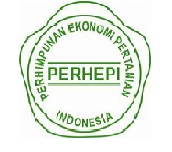Bridging the Knowledge Gap through Organic Field School (OFiS) Method for Long Pepper (Piper longum) Farmers in Wonogiri, Indonesia
Abstract
Keywords
Full Text:
PDFReferences
Afriawan, M. D. A. A., Al-Akromi, M. A. I., Andira, M. H. P., Sutrisno, M. T., Nurwulandari, M., Sugiyarto, S., Nazar, I. A., Naim, D. M., & Setyawan, A. D. (2024). Traditional knowledge in land management and utilization of natural resources in Wonogiri District, Central Java, Indonesia. International Journal of Tropical Drylands, 8(1), 21–26. https://doi.org/10.13057/tropdrylands/t080103
Arum, M. R., Utami, A. W., & Irham, I. (2023). The Importance of Livelihood Diversification on Agroforestry Farmers in The Landslide Prone Area: A Case Study in Menoreh Hills Kulon Progo, Indonesia. BIO Web of Conferences, 80, 02008. https://doi.org/10.1051/bioconf/20238002008
Astutik, S., Pretzsch, J., Kimengsi, J. N., & Kapp, G. (2023). Medicinal plants production systems in rural Indonesia: Management practices and performance insights. Forest Policy and Economics, 153(September 2021), 102972. https://doi.org/10.1016/j.forpol.2023.102972
Badan Pusat Statistik. (2024). Kabupaten Wonogiri Dalam Angka 2024. In Badan Pusat Statistic (Vol. 01). http://scioteca.caf.com/bitstream/handle/1 23456789/1091/RED2017-Eng 8ene.pdf?sequence=12&isAllowed=y%0 Ahttp://dx.doi.org/10.1016/j.regsciurbeco. 2008.06.005%0Ahttps://www.researchgat e.net/publication/305320484_SISTEM_P EMBETUNGAN_TERPUSAT_STRATE GI_MELESTARI
Bellon, M. R., Kotu, B. H., Azzarri, C., & Caracciolo, F. (2020). To diversify or not to diversify, that is the question. Pursuing agricultural development for smallholder farmers in marginal areas of Ghana. World Development, 125, 104682. https://doi.org/10.1016/j.worlddev.2019.104682
Busthanul, N., Salman, D., Syafiuddin, M., Lumoindong, Y., Amir, A., Saadah, S., Ali, D., & Askinner. (2020). Comparative cost analysis of pepper farming income under certification and non-certification seeds implementation (Case in Towuti District, East Luwu Regency, South Sulawesi Province, Indonesia). IOP Conference Series: Earth and Environmental Science, 575(1). https://doi.org/10.1088/1755-1315/575/1/012051
Chang, S. H. E., Benjamin, E. O., & Sauer, J. (2024). Factors influencing the adoption of sustainable agricultural practices for rice cultivation in Southeast Asia: a review. Agronomy for Sustainable Development, 44(3), 1–29. https://doi.org/10.1007/s13593-024-00960-w
Dewi, W. S., Purwanto, S., Rahmadani, A. D., Pranata, W. G., & Herdiansyah, G. (2023). Land suitability evaluation for Curcuma zedoaria Rosc. in the community forest of the upstream Bengawan Solo watershed, Wonogiri, Indonesia. Journal of Degraded and Mining Lands Management, 10(3), 4369–4377. https://doi.org/10.15243/jdmlm.2023.103.4369
Ditjenbun. (2022). Statistik Perkebunan Non Unggulan Nasional 2020-2022. In Direktorat Jenderal Perkebunan Kementerian Pertanian Republik Indonesia. Kementerian Pertanian. https://ditjenbun.pertanian.go.id/?publikasi=buku-statistik-perkebunan-non-unggulan-2020-2022
Esteves, R. C., do Amaral Vendramini, A. L., & Accioly, F. (2021). A qualitative meta-synthesis study of the convergence between organic crop regulations in the United States, Brazil, and Europe. Trends in Food Science and Technology, 107(October 2020), 343–357. https://doi.org/10.1016/j.tifs.2020.10.044
Minah, S., Norjietta, T., Rosliah, K., & Novi, S. K. I. (2019). Local wisdom in agriculture for environmental sustainability: A case study of the Dusun community. International Journal of Innovation, Creativity and Change, 6(8), 117–138.
Mohammadian, M., & Niknami, M. (2022). Bridging the knowledge gap of apple growers: Transition from conventional to organic production pattern in Iran. New Medit, 21(2), 43–58. https://doi.org/10.30682/nm2202d
Sacchi, G., Romanello, L., & Canavari, M. (2024). The future of organic certification: potential impacts of the inclusion of Participatory Guarantee Systems in the European organic regulation. Agricultural and Food Economics, 12(1). https://doi.org/10.1186/s40100-023-00294-3
Shimelis, T. (2021). Spices production and marketing in Ethiopia: A review. Cogent Food and Agriculture, 7(1). https://doi.org/10.1080/23311932.2021.1915558 Spence, C. (2024). The king of spices: On pepper’s pungent pleasure. International Journal of Gastronomy and Food Science, 35(February), 100900. https://doi.org/10.1016/j.ijgfs.2024.100900
Susetiyo, B. T., & Hayati, M. (2021). DAYA SAING EKSPOR CABE JAMU INDONESIA DI INDIA. Seminar Nasional Petani Milenial Dalam Pembangunan Pertaian Menuju Kedaulatan Pangan Berkelanjutan, 99–111. https://doi.org/10.24929/prosd.v0i0.2809 Yadav, V., Krishnan, A., & Vohora, D. (2020). A systematic review on Piper longum L.: Bridging traditional knowledge and pharmacological evidence for future translational research. Journal of Ethnopharmacology, 247(September 2019), 112255. https://doi.org/10.1016/j.jep.2019.112255
Yadav, V., Krishnan, A., & Vohora, D. (2020). A systematic review on Piper longum L.: Bridging traditional knowledge and pharmacological evidence for future translational research. Journal of Ethnopharmacology, 247(September 2019), 112255. https://doi.org/10.1016/j.jep.2019.112255
DOI: https://doi.org/10.20961/prima.v9i1.93525
Refbacks
- There are currently no refbacks.
View My Stats

This work is licensed under a Creative Commons Attribution-ShareAlike 4.0 International License.


.jpg)



1.jpg)











